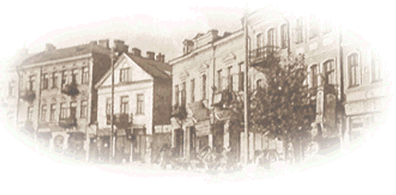

Christianity Today, Week of June 11
Poland's Catholic Bishops Ask Forgiveness for Wartime Massacre
of Jews
Theologian says continued anti-Semitism overshadows gesture.
By Jonathan Luxmoore in Warsaw | posted 6/12/01
In a special church service, Poland's Roman Catholic bishops have asked
forgiveness for the complicity of church members in a wartime massacre
of Jews.
The country's leading Jewish theologian welcomed the "unambiguous
gesture," but criticized church leaders' continued tolerance of anti-Semitism.
At a service on May 27 in All Saints Church, close to the site of Warsaw's wartime Jewish ghetto, Bishop Stanislaw Gadecki, chairman of the Polish church's Commission for Dialogue with Judaism, said his church condemned "all forms of intolerance, racism and anti-Semitism." He referred specifically to the pogrom at Jedwabne where up to 1600 Jewish men, women and children were hacked to death or burned alive on July 10, 1941 during an eight-hour rampage three weeks after the German occupation of eastern Poland.
"We wish to show regret and penance for crimes which occurred at Jedwabne and elsewhere, whose victims were Jews and whose perpetrators included Poles and Catholics, baptized people," Gadecki said. "We are deeply pained by the behavior of those who inflicted suffering and even death on Jews. We recall this crime so we can fruitfully assume responsibility for overcoming every evil occurring today."
Poland's 3.5 million Jews made up a tenth of the national population before the Second World War, although only 100,000 survived the Holocaust. Jewish community groups in Poland now have about 3,000 members, and the country has about 150 religious Jews.
Stanislaw Krajewski, co-chairman of Poland's Council of Christians and Jews, said: "The [Warsaw] service itself left a very positive impression since it was unambiguously stated that guilt for this massacre was shared by Polish Catholics. But the problem lies in how much practical effect this message will have, and whether it will do anything to de-legitimize the activities typified by this church bookstore."
Krajewski was referring to various books on sale at the church during the service, including Jedwabne Geszefty by Henryk Pajak. The book's introduction said revelations about the massacre were "just one step in a world crusade of total discrimination against Poles and Poland." Another book on sale accused Jews of plotting against Poland.
The service, attended by Polish government officials, included a prayer for Jews written in 1998 by Pope John Paul II, as well as an intercession for "those who fail to value the Jewish contribution to world and national culture."
The Polish president, Aleksandr Kwasniewski, is to attend the 60th anniversary memorial ceremony in July at Jedwabne. A communist-era memorial stone in the town blaming the atrocity on "Gestapo and Hitlerite gendarmes" was removed last March.
However, the local Roman Catholic bishop, Stanislaw Stefanek, confirmed that church leaders would not participate, and would instead hold their own memorial services.
Commenting on the Warsaw service, the mass-circulation newspaper Gazeta Wyborcza said the bishops' prayers represented an "unprecedented" acknowledgement of "specific crimes."
The Israeli ambassador, Shevach Weiss, once an inmate at the Auschwitz camp, predicted the gesture would be "a positive step for everyone, as well as for the Polish nation."
However, Krajewski said he believed the service's impact had been damaged by the sale of the anti-Semitic publications at the church, which stands opposite the Polish capital's only remaining Jewish synagogue.
"The contradiction is obvious, and merely highlights the ineffectiveness of the church's gesture," Krajewski said. "If the bookshop was selling a single pro-abortion publication, they would have reacted immediately. But they don't seem to think anti-Semitic books are important enough. Perhaps some bishops consider them acceptable."
Details of the Jedwabne pogrom, publicized in a February book, Neighbors, by US-Polish historian Jan Tomasz Gross, have spurred a national debate in Poland, most of whose citizens have traditionally seen themselves as victims rather than perpetrators of major injustice.
Krajewski said he believed the discussions had "changed the situation" in the country, where Catholic priests had frequently been accused of making anti-Semitic statements.
However, he added that he also regretted that the bishops at the Warsaw service had not paid tribute to several Jedwabne inhabitants who rescued Jews from the massacre, and who now found themselves "increasingly marginalized" within their community.
Krajewski said,"we still have no guarantee that enough collective will exists to implement the church's teaching."
At the service, a group of Polish protesters handed out leaflets saying the debate over the Jedwabne massacre had become "a pretext to boost the pretensions of chauvinist Jewish groups against Poland." The protesters urged the bishops not to "yield to pressure from enemies of our faith and fatherland."
Most Jewish leaders declined invitations to the service which coincided with a Jewish festival. They also mentioned the anti-Semitic books on sale at the church bookshop.
Copyright © 2001 ENI.
Related Elsewhere:
According to Central Europe Review, current
catholic
hierarchy cannot be accused of preaching anti-Semitism, but individual
priests can be.
An extensive ideography of the Jedwabne debate follows public discourse on the issue.
The Sunday Age of Melbourne, Australia sums up the Jedwabne debate.
Adam Michnik writes in the New York Times that details of the Jedwabne massacre has set off a debate in a country whose people think of themselves as wartime victims, not villains.
The Washington Post also reported on how the truth uncovered in Neighbors knifed through Poland's cherished image of itself as heroic victim of the Nazis.
Amazon.com offers Neighbors: The Destruction of the Jewish Community in Jedwabne, Poland.
In a New Yorker Q&A, the author of Neighbors, Jan T. Gross, talks abut the Jewish-Polish entanglement.
Recent related Christianity Today articles include:
Chicago's Cardinal Issues Warning to Visiting Polish Priest | But measures against anti-Semitic remarks called "stupidity" and "garbage" by priest's spokesman. (May 9, 2000)
At Jerusalem's Holocaust Memorial, Pope Regrets Persecution of Jews | Catholic Church 'deeply saddened by anti-Semitism directed against the Jews by Christians.' (March 20, 2000)
| English | ||